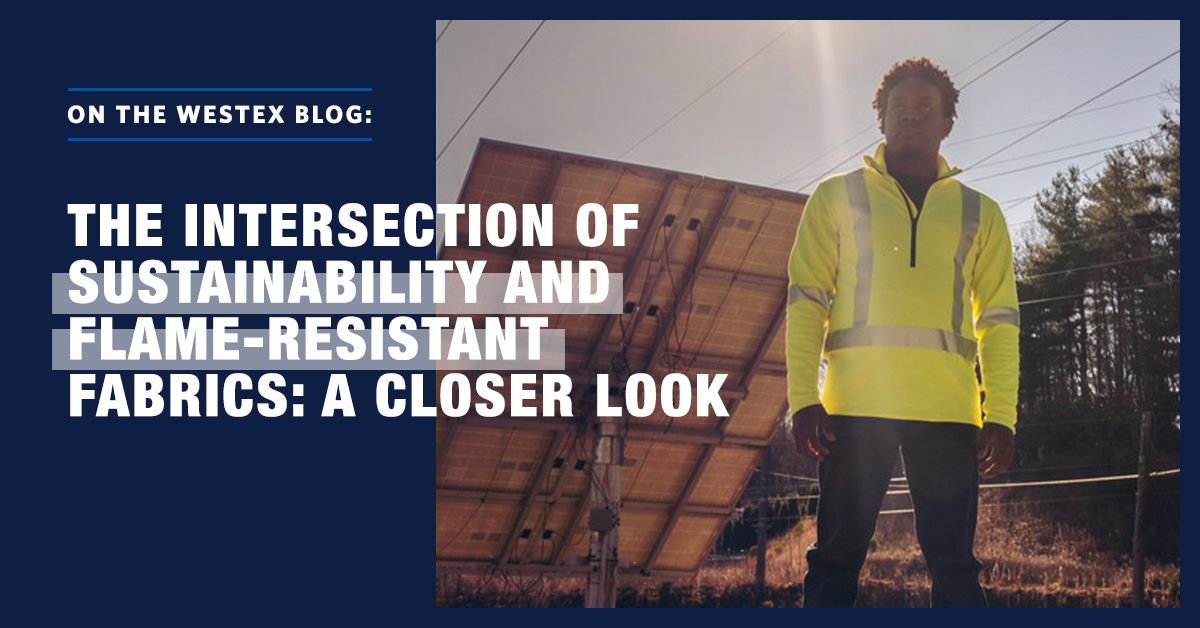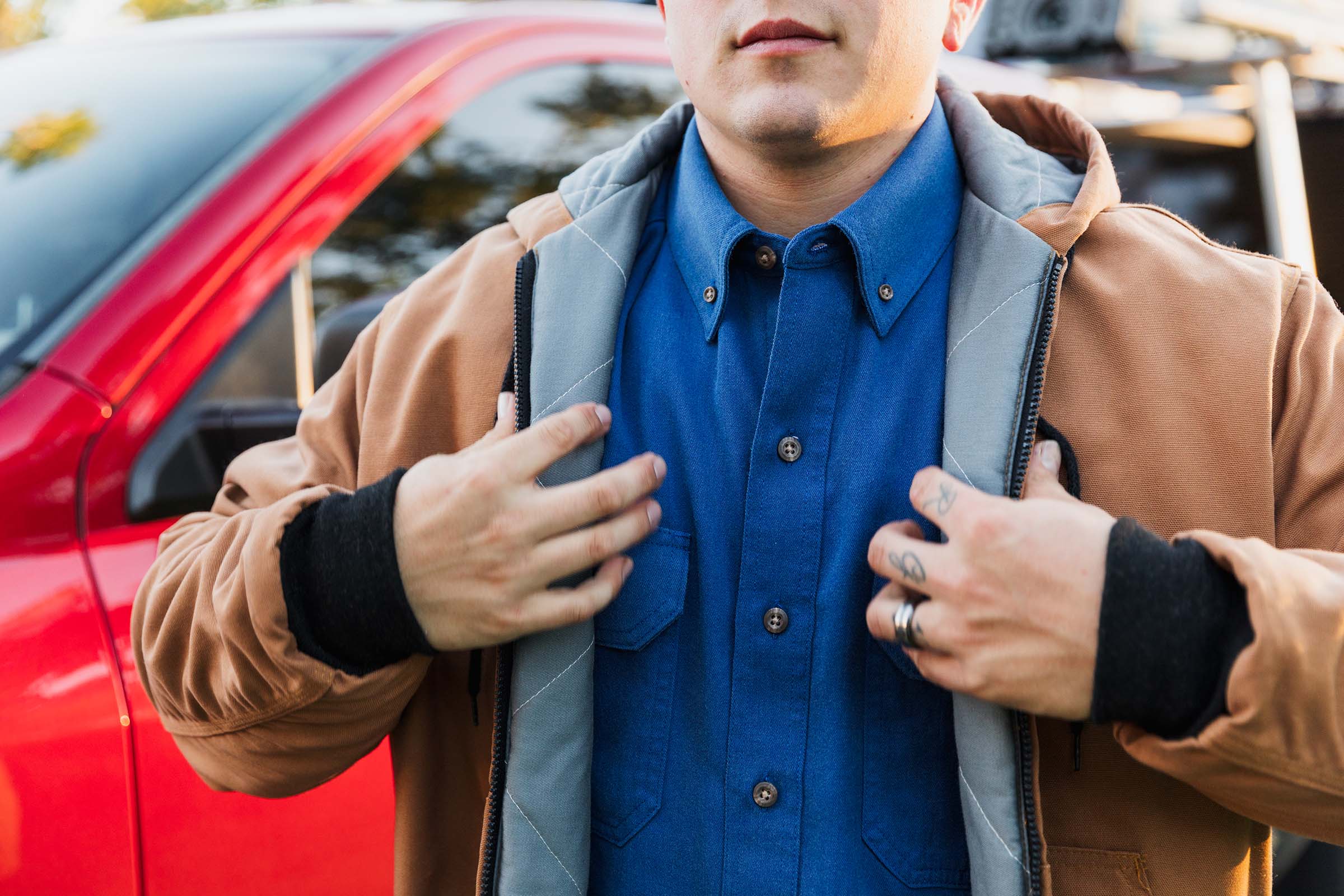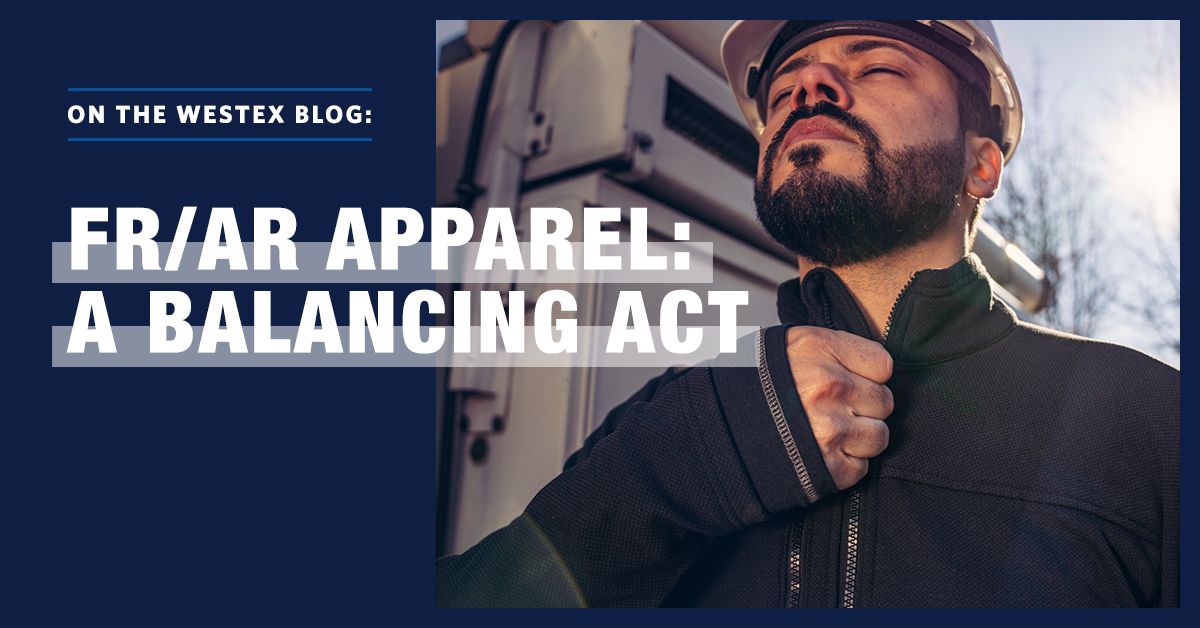
The Intersection of Sustainability and Flame-Resistant Fabrics: A Closer Look
22 May 2024
In recent years, sustainability has become a focal point across various industries, especially textiles. Developing flame-resistant, arc-rated (FR/AR) fabrics that prioritize safety and adhere to sustainable practices is a priority for the FR/AR market. This connection comes down to key touchpoints: material sourcing, fabric manufacturing, and garment lifecycle.
Sustainable Fabrics & Materials
Traditionally, flame-resistant fabrics were often associated with synthetic materials such as aramid fibers. While effective in their fire-retardant properties, these fabrics posed significant environmental challenges due to their non-biodegradable nature and reliance on fossil fuels for production. However, advancements in textile engineering have paved the way for sustainable alternatives.
Today, Westex®: A Milliken Brand prioritizes developing flame-resistant fabrics from renewable resources, such as cotton and TENCEL™ Lyocell fiber. TENCEL Lyocell fibers are made from wood and produced in an environmentally responsible, closed-loop process.
Many of Westex’s various types of fibers, yarns, and technologies provide inherent flame-resistant properties while minimizing the environmental footprint associated with their production and disposal.
Eco-Friendly Manufacturing Processes
Beyond the raw materials, the manufacturing processes of producing flame-resistant fabrics are crucial in determining their sustainability. Milliken & Company is increasingly adopting eco-friendly practices such as water conservation, energy efficiency, and waste reduction to minimize environmental impact.
Milliken is one of the first 50 companies in the world, and the first in South Carolina, to have science-based short- and long-term targets approved by the U.N.-backed Science Based Targets initiative (SBTi) to chart our course toward becoming net-zero by 2050.
Review our latest sustainability report for additional information regarding our manufacturing sustainability commitments and progress.
Garment Longevity and Durability
One of the fundamental principles of sustainability is durability—creating garments that withstand the test of time and reduce the need for frequent replacements. Garments made with Westex’s FR/AR fabrics are designed to withstand extreme conditions without compromising their integrity or comfort.
By investing in high-quality flame-resistant textiles, consumers can reduce their overall environmental impact by minimizing the frequency of replacements and extending the lifespan of their garments or personal protective equipment (PPE). This conserves resources and reduces the amount of textile waste ending up in landfills—a win-win for both sustainability and safety.
Westex + Sustainability
By prioritizing materials, manufacturing processes, and durability, Westex actively works to ignite positive change and forge a path toward a more sustainable tomorrow. Westex® DH Air™ is made with TENCEL™ Lyocell fiber* and is a top choice for sustainable arc flash and flash fire protection. It provides excellent breathability and moisture management while maintaining color consistency.
Check out our complete fabric offering to learn more.
*TENCEL™ is a trademark of Lenzing AG.

